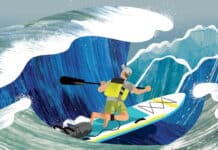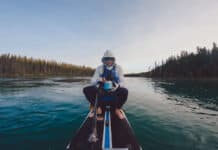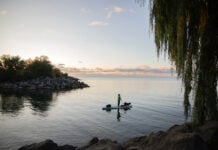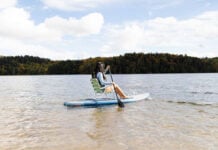July 21, 14:30, somewhere just south of the Arctic Circle. Dehydrated, sunburnt, nursing blisters and suffering from nerve damage in our feet from standing for so long, we were just 20 miles from the finish line of the Yukon 1000, the world’s longest and toughest unsupported survival paddle race. And for the first time, we were certain: we were going to finish within the cutoff time.
Inside the world’s toughest paddling race—on SUPs
Eight days and 980 miles earlier, we had set off from Whitehorse, the capital of Canada’s Yukon territory. But the true start to our journey began four years earlier, back in 2019, when my paddling partner, Skip, and I discovered the race while searching for a multi-day SUP hallenge.
First, we found the infamous Yukon River Quest, a 444-mile race from Whitehorse to Dawson, following the same route gold rush stampeders took north in the 1890s. The Yukon River Quest is billed as “the second longest paddle race in the world,” which, of course, made us wonder, which is the longest?
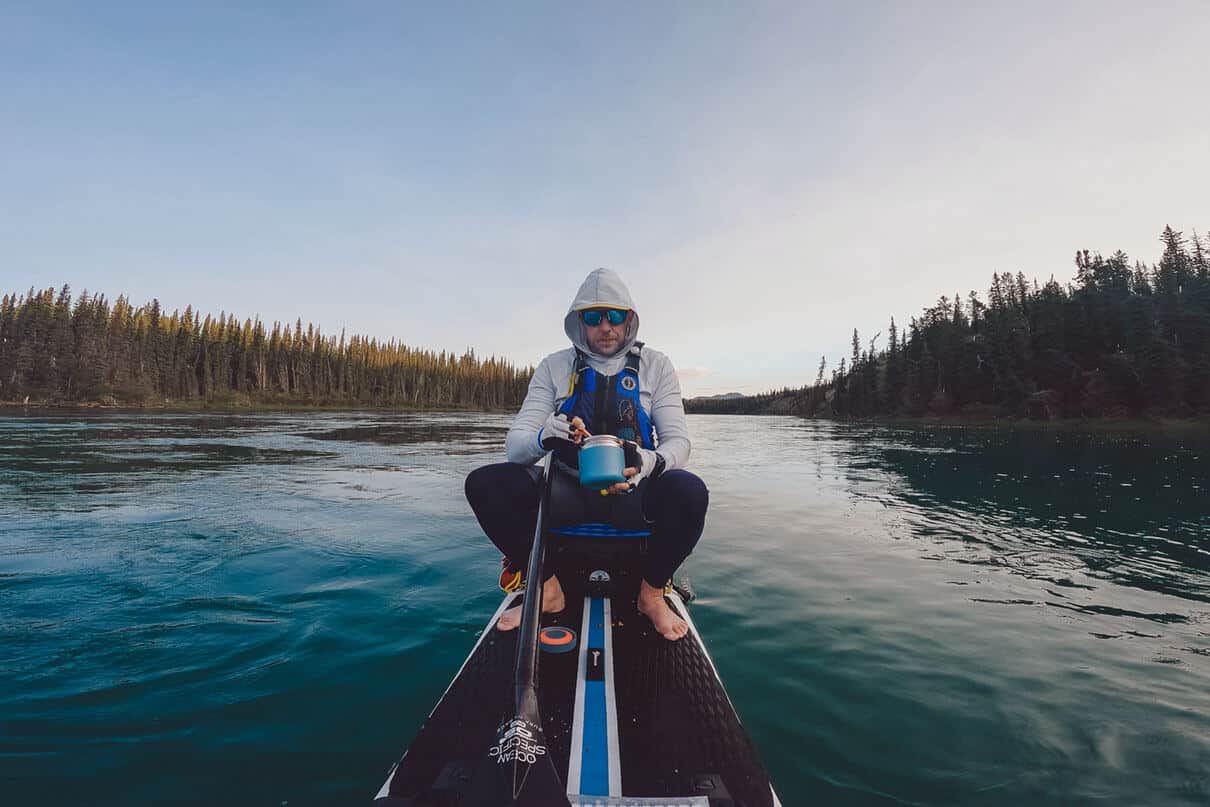
Beyond Dawson
The Yukon 1000 claimed the title as the longest paddle race in the world when it began in 2009. Once a wild outpost teeming with fortune seekers, Dawson City is the end point of the Yukon River Quest but just the halfway point for the Yukon 1000, which stretches another 500 miles to the Dalton Highway Bridge, 140 miles north of Fairbanks, Alaska. The race cutoff is 234 hours—equivalent to nine days and 18 hours. If you exceed this time, your finish will not be acknowledged. The race is open to kayaks, canoes and SUPs, but everyone must paddle in a team—no one races alone.
Most participants complete the race in seven to eight days. The fastest time? Five days, 11 hours, and 48 minutes, set by a kayak team in 2022.
Each year, thousands of teams apply, but just 30 teams are awarded spots. At first, Skip and I didn’t have high hopes of being selected and quickly forgot about the application. To say we were surprised at being accepted was an understatement.
“I’m looking for applications with a bit of humility—teams that tell me, ‘This is where we are at, these are our strengths, and these are the things we are going to work on if we are accepted,’” race organizer Jon Firth told me later. “I don’t care how many followers you have or what your social media reach is—that won’t get you across the line. It’s about what skills you are missing and how you are going to address that.”
As it turned out, Skip and I ended up having much longer than anticipated to work on our weaknesses and missing skills. The 2020 race was canceled due to the pandemic, and 2021 met the same fate. In 2022, the race was greenlit, but two days before the race—after traveling all the way from the United Kingdom and while preparing in Whitehorse—I tested positive for COVID. It was crushing.
Due to the remoteness of the expedition, we made the tough decision to withdraw. But Skip and I both agreed we had unfinished business and the following year, we finally got underway.
River Life
Nothing really prepares you for what it’s like on the Yukon River. Even with four years of preparation, research, and training, it was impossible to replicate just what it would be like to paddle 18 hours a day in such stunningly brutal, beautiful, and remote wilderness.
Days on the river followed the same pattern. We paddled close to midnight each day, then looked for somewhere safe to camp for the mandatory six-hour daily stop. In those six hours, we had to make camp, deal with injuries and niggles, prep water filtration for the next day and get some sleep. And then do it all in reverse to be back on the water exactly six hours later so we didn’t lose valuable time.
We averaged just two and a half to three hours of sleep per day.
The further north we traveled, the more desolate and barren the environment became. It went from 35°C blistering sunshine to 30-mile-per-hour headwinds, torrential rain and a dip in temperature of 10 degrees or more within minutes. That far north, the summer sun never really sets.
By the time we entered the Arctic Circle on our sixth day, we had only seen a handful of people in almost 700 miles. We had no idea where we were placed in the race or how close—or far—the other teams were. A team could be a mile ahead or 50 behind, and we’d never know.
That’s part of what makes the Yukon 1000 different. From the moment you leave the start, you are on your own. No checkpoints, no safety boats, no resupply. Absolutely no outside help is allowed. The mandatory satellite phone stays sealed in a tamper-proof bag, only to be used in an emergency—at which point you are also disqualified. The SPOT tracker sends a one-way ping for organizers, family, and friends to track progress. That’s it.
Racing Ghosts
The silence played tricks on us. We had no way of knowing if a team was a few bends behind or had slipped ahead through one of the hundreds of islands and channels we picked our way through. Later in the race, as we began to hallucinate from lack of sleep, we saw shadows and shapes on the horizon and were convinced it was other teams catching us.
Creeping paranoia led to short tempers that could have easily boiled over into arguments. Exhaustion and sleep deprivation can turn small things into big issues in places where you can’t afford conflict. This is where the relationship and understanding you have with your paddle partner is tested; pick the wrong wingman, and you will both have a terrible time.
As it turned out, Skip and I were perfect partners, pulling each other through the tough times. When we finally spotted the Dalton Highway Bridge that we had dreamed about for four years, every blister, sleepless hour, and hallucination was worth it. We crossed the line as the first SUP team, clocking in at eight days, 13 hours and three minutes with smiles on our faces.
The Yukon 1000 taught me so much. We are capable of far more than we give ourselves credit for, and there is so much joy and reward when you step outside of your comfort zone. Every delay and challenge was part of the journey—I wouldn’t have it any other way. The Yukon still has a hold on me. Even now, when I close my eyes, I can smell the pine and feel the miles stretching ahead.
Craig Sawyer is a performance SUP coach. His documentary about the race is now available to stream at yukon1000documentary.com. In the summer of 2025, Craig will return to race solo in the Yukon River Quest.
The Yukon 1000 is the world’s longest paddling race and takes, on average, eight nearly-sleepless days to complete. Each year, thousands of teams apply for just 30 coveted spots. | Feature photo: Courtesy Craig Sawyer


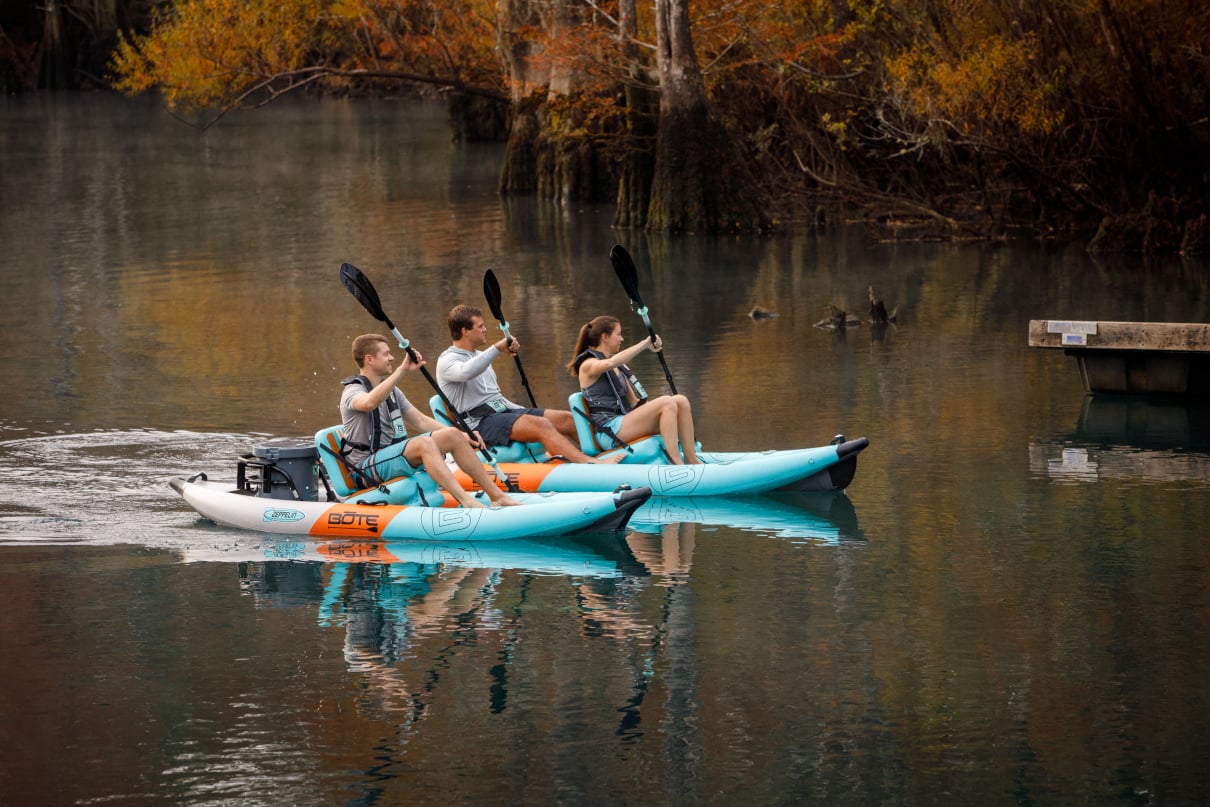
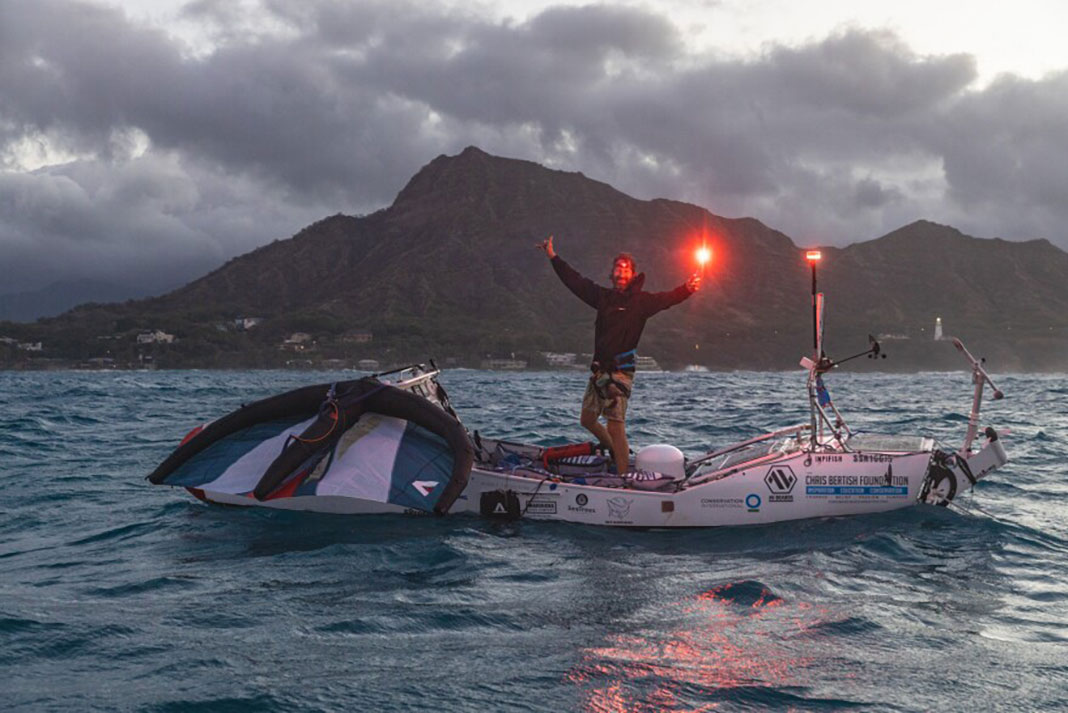
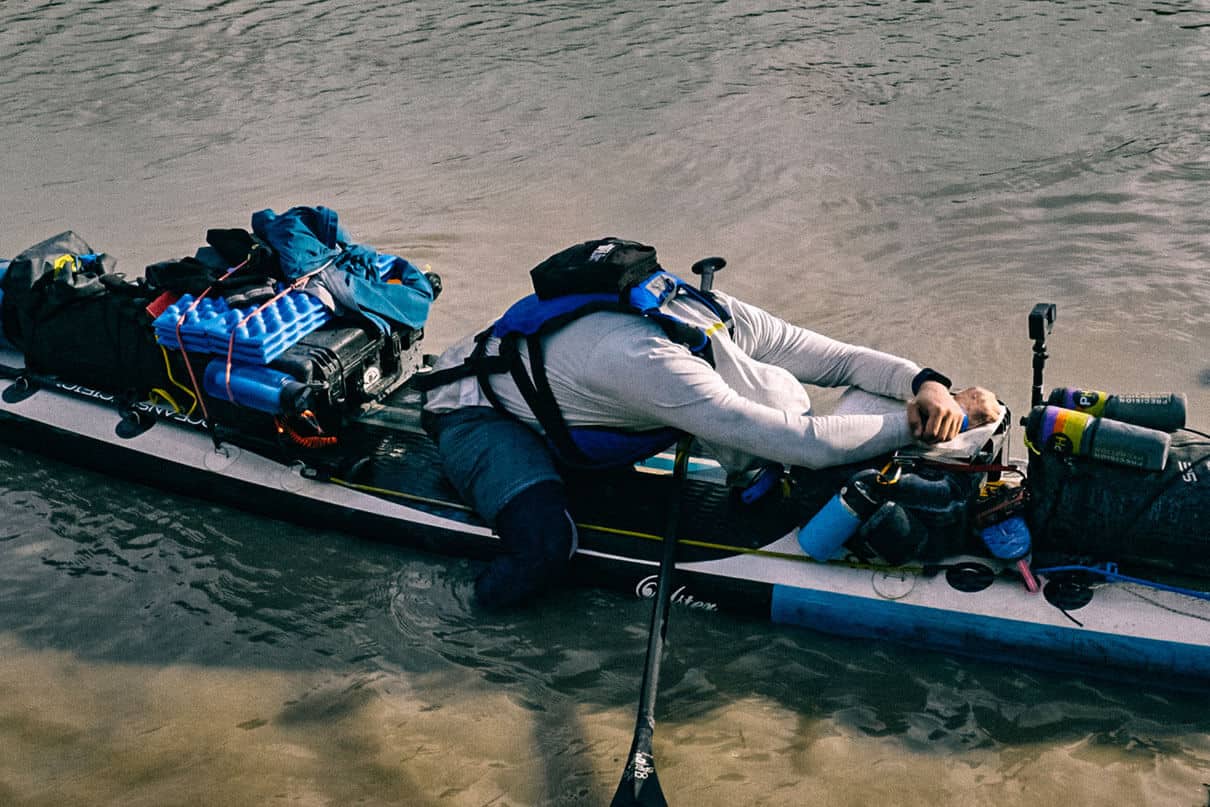
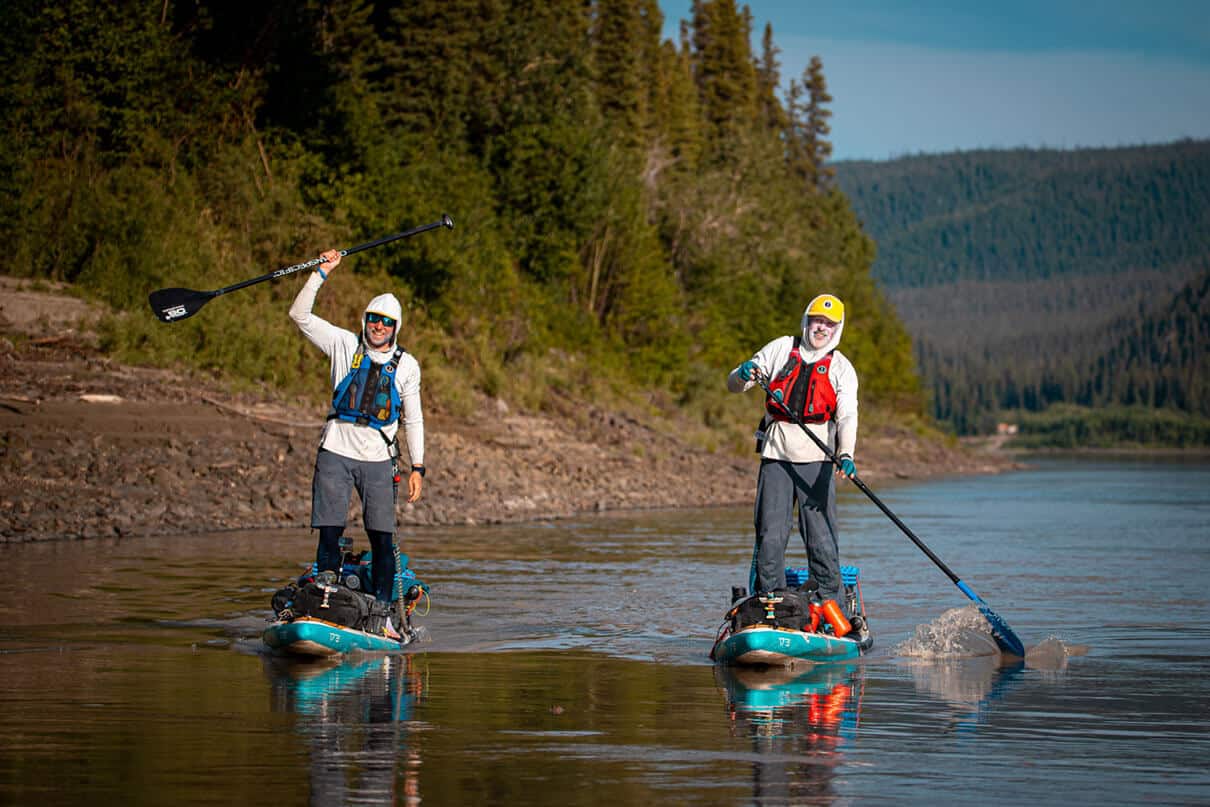
 This article was published in Issue 73 of Paddling Magazine.
This article was published in Issue 73 of Paddling Magazine. 